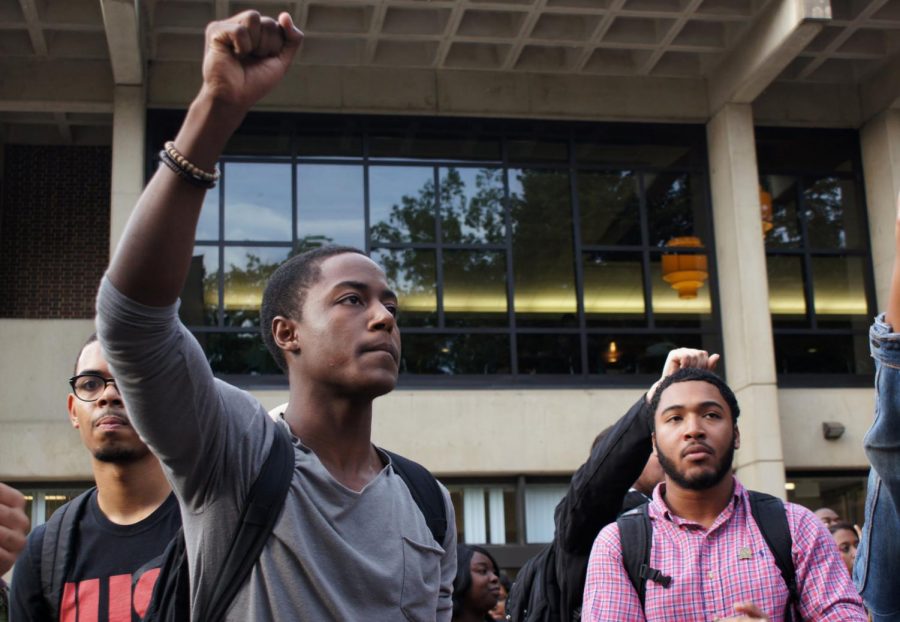When I took karate as an undergrad, I remember being drilled in two important rules: keep your hands up to guard your face, and your hands are never as high as you think. You may wonder why, out of all the moves to learn in karate, such constant emphasis was placed on your hands. There is an answer to that: uncertainty. You see, the face is an easy and vulnerable target. Most real fights aren’t flashy, elegant or protracted affairs like fights in the movies, but they are nasty, brutish and short; every second counts and so does every hit. Given how quickly these things go down, you can’t always predict when and where you’ll get hit – and believe me, you willget hit. But if you keep your hands up, you won’t get knocked down. If you relax your guard, even for a moment, you’ll be open to defeat.
This “hands up” ethos was every bit as metaphorical as it was literal. It means keeping alert and on guard at all moments in life. My karate teacher was a police officer, so he knew the costs of being lax. He often told us stories about his comrades, some of the best in the field, who found themselves shot after a moment of distraction. It doesn’t matter how high your rank or how long your experience, an ever-alert mind behooves us all.
This month, we’ve been running through a number of drills here at the University of Massachusetts. Our daily routines have been disrupted by blaring sirens and flashing lights. I know they can feel like a mild annoyance and as a result, participation in these drills isn’t always as high as it should be. Most people think they’ll know what to do when the real alarm rings, but to know in the brain is not to know in the flesh. In moments of shock, impulse can overwhelm reason and unless certain practices are second in nature, they’ll be quickly forgotten by the brain. This is why we practice. In the martial arts, we call this “muscle memory,” meaning if you train your body repeatedly in certain moves, the muscles will remember it and in time, it becomes a reflex. You don’t even need to think – if you call upon it, it’s there. Drills always seem trivial until something happens. Then, they mean everything. You won’t always have the time to think. You need the reflex.
Drills save lives. Think of the great American hero, Rick Rescorla, who was the head of the Morgan Stanley security firm at the World Trade Center. Fearing another attack after the 1993 bombing at the World Trade Center, Rescorla had everyone in his firm practice constant evacuation drills. As a result of his training, the employees were prepared on Sept. 11, 2001 and almost 2,700 lives were saved. Or consider the high school student Carson Abt, a survivor of the mass shooting at Marjory Stoneman Douglas High School in Parkland, Florida. When President Trump questioned the effectiveness of active shooting drills in schools, Abt wrote an OpEd defending them in “The New York Times.” In the OpEd, she praised her math teacher Jim Gard who knew during “Code Red” to keep the students in his classroom, lock the doors and turn off the lights. She also praised her geography teacher Ernest Rospierski, who, due to the drills, knew how to effectively guide students to locked classrooms and out of the hallways.
Sadly, Rescorla did not survive Sept. 11, and neither did three teachers who saved students at Marjory Stoneman Douglas. But even so, the preparedness exhibited in the face of tragedy can be a bright example for all of us to follow. Of course, it is our shared hope that no misfortune will come to us or our fellows on campus but if the rains fall, the floods come and the winds blow, we must retreat to the fortress of stone and not the castle of sand. So please, let us all try to be mindful of the drills, keep alert, keep in practice and keep our hands up.
Joseph Erobha is a Collegian contributor and can be reached at [email protected].



















Amy • Oct 11, 2018 at 12:50 am
Horrible article.